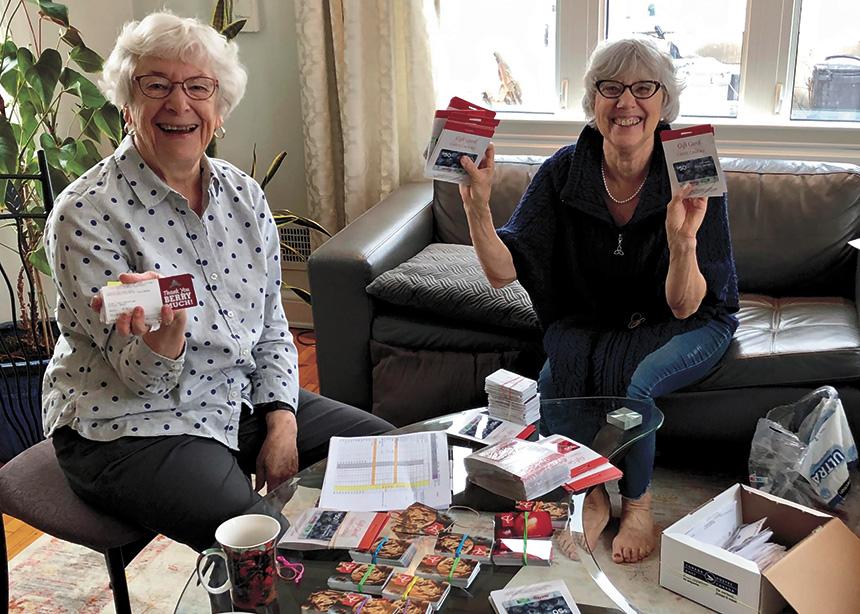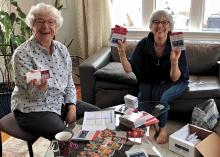For more than 20 years, a refugee support group at Ottawa Mennonite Church has used an unusual fundraising method that has allowed it to provide hundreds of thousands of dollars in rent subsidy to newcomers. The rising cost of living has made this support all the more important.
Since 1979, the church has sponsored, or informally supported, more than 380 newcomers from nearly 30 countries. In 2001, the work took on new dimensions.
Conversations at church around the lack of affordable housing resulted in the formation of the Ottawa Mennonite Refugee Alternatives Shelter Corporation, commonly known as OMRA. This small group realized that the financial support provided by the Canadian government simply didn’t cover the real costs of living in a city like Ottawa. In response, it set out to provide a way to make the transition to Canadian life just a little more manageable for people who had already been faced with so much.
Seeing a need for compassionate landlords, the group decided to purchase a townhouse using donated funds and grant money. The concept was to offer a refugee family subsidized rent in the house for their first couple of years in Ottawa.
The plan achieved its goal and, over the next 10 years, the group bought three more homes. In 2017, it changed course. In the face of growing need, it decided to sell two of the houses and use the resulting revenue to offer subsidies to families renting other housing.
With this change, the church went from assisting four families living in their four homes, to helping 35 families meet their rent payments.
Currently, this small volunteer-run organization provides around $150,000 in rent subsidies annually; between $150 and $750 per month per family, depending on need. The money comes from interest on the revenue from the houses that were sold, rent from the remaining properties, donations and the ingenious fundraising activity the group has used since 2001.
A number of large grocery chains have programs that allow community groups to retain up to six percent of the face value of grocery gift cards if they sell enough of them to meet the chains’ specified sales requirements. OMRA volunteers buy gift cards in bulk from the Loblaws, Metro and Farm Boy, then sell them at face value, retaining their cut of the sales. In the case of these chains, the minimum amount they need to sell is $20,000 monthly, per store.
Over the years, the program has grown to include about 325 households, who use gift cards to buy roughly $65,000 worth of groceries each month. Participants are from Ottawa Mennonite, five other congregations and several community groups. The program’s cut of the sales, along with the credit-card points they use to purchase the cards—which they put back into the program—provides about $50,000 annually in rental subsidies for refugee newcomers. OMRA also retains small amounts left on returned cards, as well as additional donations made through the program.
Everyone buys groceries. It makes no difference to most of them if they pay directly or use a gift card. By simply adding a charitable middle-person, at no extra cost, a percentage of participants’ monthly grocery bills go to a good cause. The only catch is that it requires a lot of effort on the part of volunteers. All of the orders must be tracked, payments received and cards ordered, sorted and distributed. This work is done by Ottawa Mennonite’s volunteers.
Through these collective efforts, 325 households share their table, in a sense, with new neighbours in Ottawa. With the rising cost of living, this sharing helps families who have had so much else to deal with in their lives.



Add new comment
Canadian Mennonite invites comments and encourages constructive discussion about our content. Actual full names (first and last) are required. Comments are moderated and may be edited. They will not appear online until approved and will be posted during business hours. Some comments may be reproduced in print.